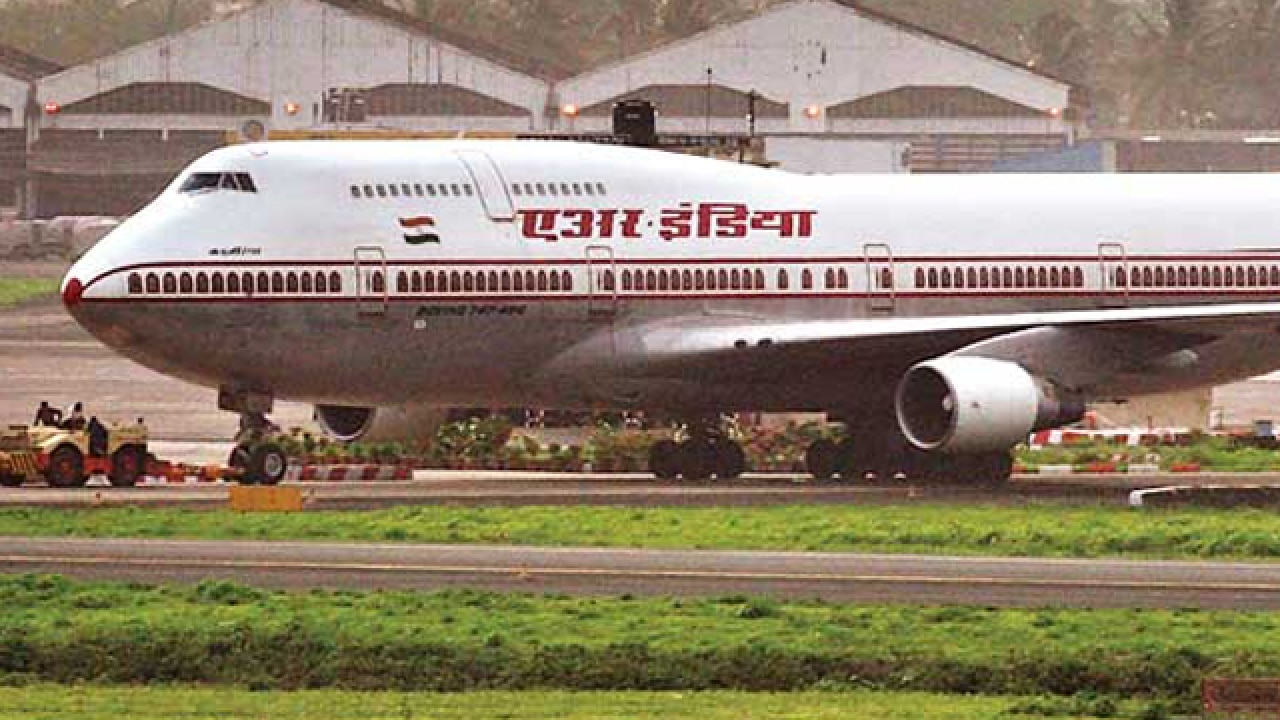
Sc irked over lack of air connectivity to north east; thrashes air india for promoting private operators' interests
- Select a language for the TTS:
- UK English Female
- UK English Male
- US English Female
- US English Male
- Australian Female
- Australian Male
- Language selected: (auto detect) - EN
Play all audios:

You are only promoting interests of operators and you don't think about connectivity, Supreme Court to Air India and government. You are only promoting interests of operators and you
don't think about connectivity, Supreme Court to Air India and government. Supreme Court on Tuesday took strong note of lack of air connectivity to places in the North East and Shimla
and rapped the government and Air India for "promoting interests" of private operators. "Is it not part of your policy guidelines to provide services to far-flung places like
North East and Shimla," a bench comprising Chief Justice T S Thakur and Justice R Banumathi asked. "You (government/Air India) are only promoting interests of operators and you
don't think about connectivity," it said, adding that the private operators have been granted licenses as "largesse" and they were interested in "lucrative"
routes like Mumbai-Delhi. "This (granting licenses) is like largesse, as you grant them without asking them (private operators) to run services on not so lucrative routes," it
said. The bench, which had earlier sought a status report from Air India on feasibility of air service connecting Shimla with Chandigarh and Delhi, was unimpressed and said, "we do not
want this dilly-dallying. We thought you will do something, but things remained as they were." Additional Solicitor General P S Patwalia, appearing for the state-run carrier, sought
time and said Air India would come out with a response. The court then posted the matter for further hearing on April 21. While the bench was expressing displeasure and keeping the matter
for passing an order on appointing an independent person and even suggested the named of former CAG Vinod Rai, the ASG sought a last opportunity to address the issue. "I am seeking time
to convey the sentiments of this court more forcefully," the ASG said. Earlier, the apex court had wanted to know from the airline about its "ultimate plan" to connect Shimla
with New Delhi and Chandigarh and asked Air India's Chairman and Managing Director to place a report within six weeks. It had however ordered maintenance of status quo on the December
7, 2015 direction passed by the Himachal Pradesh High Court asking Air India, Airports Authority of India and others concerned to start scheduled flights on a trial basis from Jubbar-Hatti
airport, 22 km from Shimla. Solicitor General Ranjit Kumar, who had appeared for Air India CMD, submitted that the airline is examining the suggestions to at least connect Shimla and
Chandigarh with 40- seater aircraft as the runway at Jubbar-Hatti Airport is very small. The apex court had wanted to know from Air India whether it had any plan to connect Shimla with
Chandigarh and New Delhi. The Solicitor General had explained various constrains, including the non-availability of refuelling facility in Shimla and certain security hazards. He said the
issue of economic viability was also there. He had also told the bench that two tourist towns -- Kullu and Dharamsala -- were already connected by air. Air India had challenged the Himachal
Pradesh High Court order to start scheduled flights on trial basis. It had said other objections and gap funding, if any, will be sorted out later. The high court had passed the order on a
petition by a local resident on the possibility of resuming Delhi-Shimla flight service from Jubbar-Hatti airport, which remains non-operational for past three year. In the high court, it
was alleged that despite crores of rupee being invested on the airport, Shimla remained without air connectivity despite being a capital town. The government is in the process of finalising
a draft civil aviation policy, which proposes changes in the route dispersal guidelines dealing with flying to remote destinations that could be socially important but not economically
viable.
